What to Do When Your Diet Stops Working
Pounds that are practically falling off! Boosted energy! Better-fitting pants! During the first few weeks (or even months) of your weight loss journey you've got results, results, and more results to show for all your hard work. Then suddenly it happens… the scale stalls and you're stuck. When this happens, you've hit what diet and exercise experts call a weight loss plateau.
"A weight-loss plateau happens to pretty much every person on a weight loss journey, at some point," registered dietitian Bonnie Taub-Dix, RDN, creator of BetterThanDieting.com, author of Read It Before You Eat It – Taking You from Label to Table. Can hitting a weight loss plateau be frustrating? Of course! "But you have to understand that hitting a plateau is just part of the process!," she says.
The stall happens because the body is smart and extremely adaptable. "The body craves stability, so usually, you'll stop dropping pounds because your body has adjusted to the new, lower-calorie routine and now requires less fuel than it did before, Taub-Dix explains." Thankfully, there are a number of simple ways to push past this weight loss lull and nudge the scale in the right direction. And good news? "Usually it's as easy as adding new foods into your diet or moving a little more," she says.
Here are our top strategies to break through a weight-loss plateau and lose weight (and keep it off!).
Diet Tips to Overcome a Weight Loss Plateau
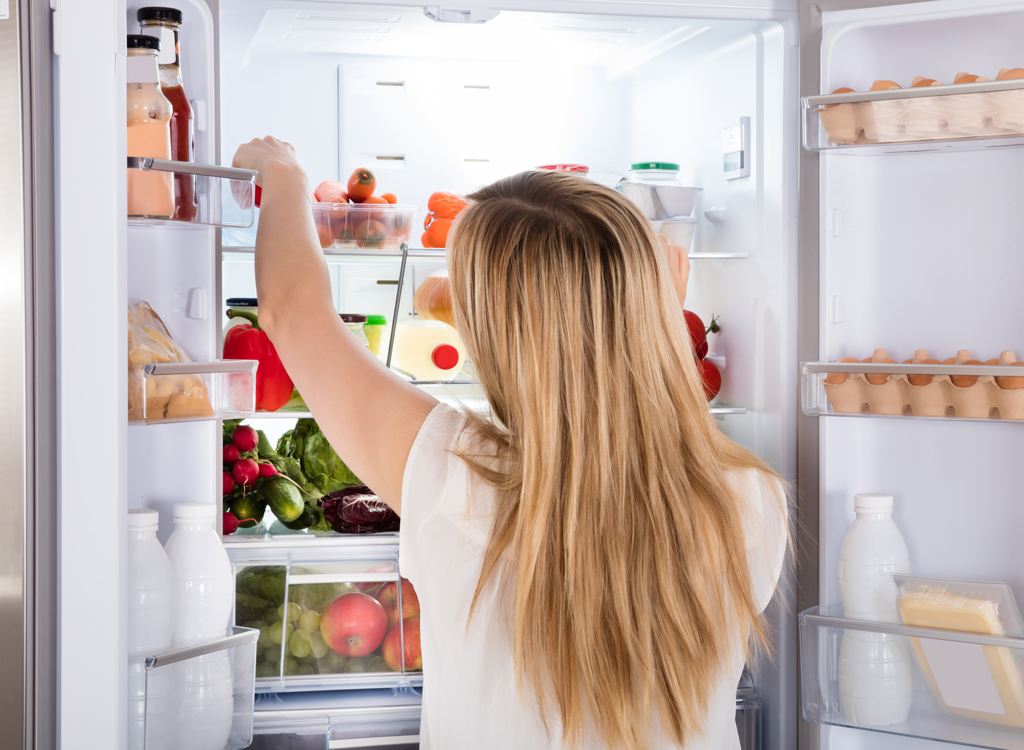
"In order to overcome a weight loss plateau, you'll likely need to adjust your calorie intake," says registered dietitian Leah Kaufman, MS, RD, CDE, CDN.
"As you lose weight, your body requires fewer calories for maintenance. If you're taking in as many calories on day 60 of your diet as you did on day 1, you won't be able to lose weight. Although you may have been losing weight previously on your current intake, you may need to eat less to achieve a larger caloric deficit."
One way Kaufman recommends figuring out exactly how many calories you need is by taking a metabolic test. "It reveals your resting metabolic rate, aka the number of calories your body burns at rest. From this number we can determine how many calories you should consume to burn off pounds," she says. Many dietitian offices and high-end gyms offer this service.
If you don't want to shell out the cash for the test, try cutting 100-200 calories a day from your diet and see how the scale reacts.
Why not more? Though it may seem counterintuitive, not eating enough can have the opposite effect on your waistline than you're hoping for.
"When people diet, they tend to restrict calories, but if you go below 1,200 calories, you can slow down your metabolism, preventing weight loss," says registered dietitian Ilyse Schapiro, MS, RD, CDN.
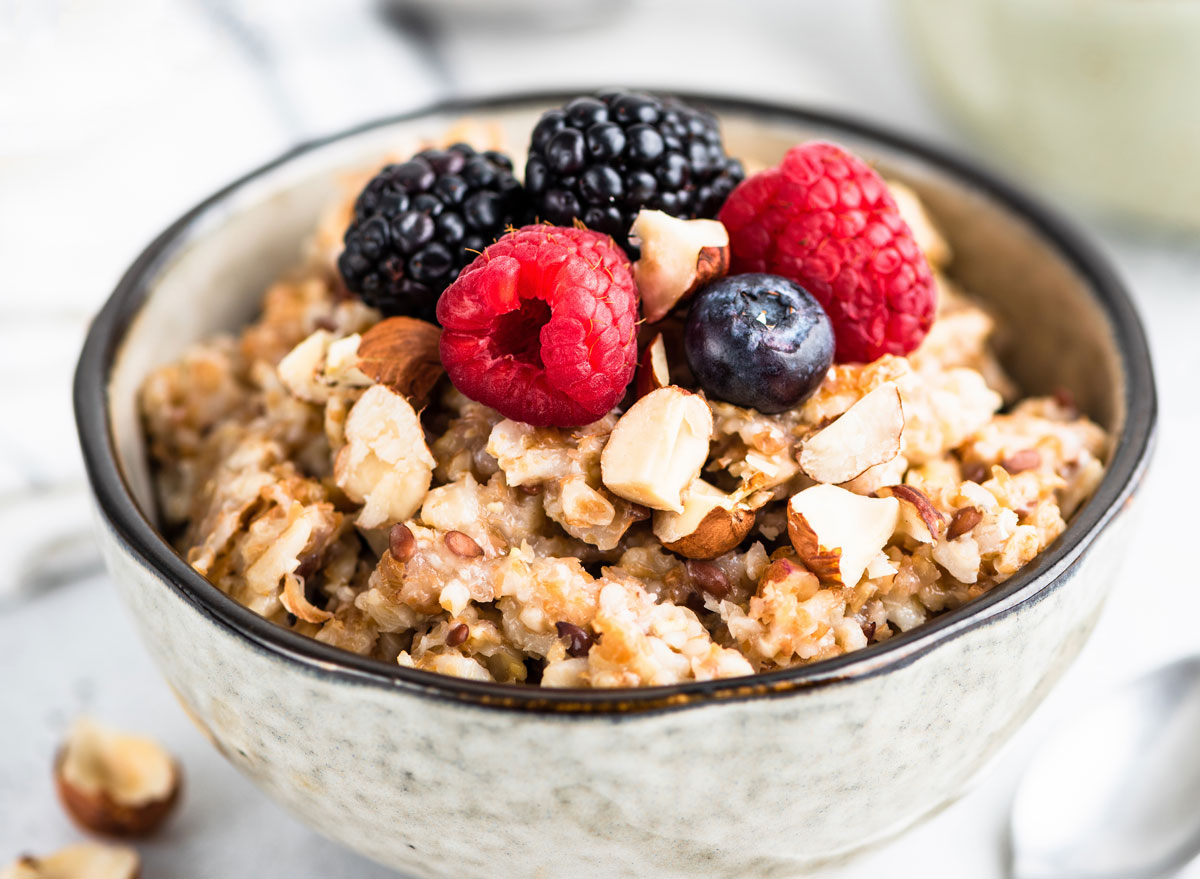
Haven't you heard? One of the best ways to fight fat is with fiber. "Emerging research shows that focusing on high-fiber foods can help you shed pounds after other diets have caused a plateau, likely because the nutrient is so filling," says Dr. Sean M. Wells, the owner of Naples Personal Training.
"Shoot for at least 30 grams of fiber a day from fresh fruits, vegetables, and whole grains," he says.
Some of the best sources of fiber to defeat a weight plateau include:
- Oatmeal (rolled or steel-cut oats)
- Nuts and seeds (almonds, walnuts, peanuts, flax, chia seeds)
- Berries (raspberries, blueberries, blackberries)
- Beans (peas, black beans, chickpeas)
- Apples
Still not convinced you should add more filling fiber to your plate? A study in the Annals of Internal Medicine found that by making one change to your diet—which is aiming to eat 30 grams of fiber a day—can help you lose weight, reduce blood pressure, and increase sensitivity to insulin. Swapping cookies for berries and white rice for barley suddenly seems way more appealing, doesn't it?
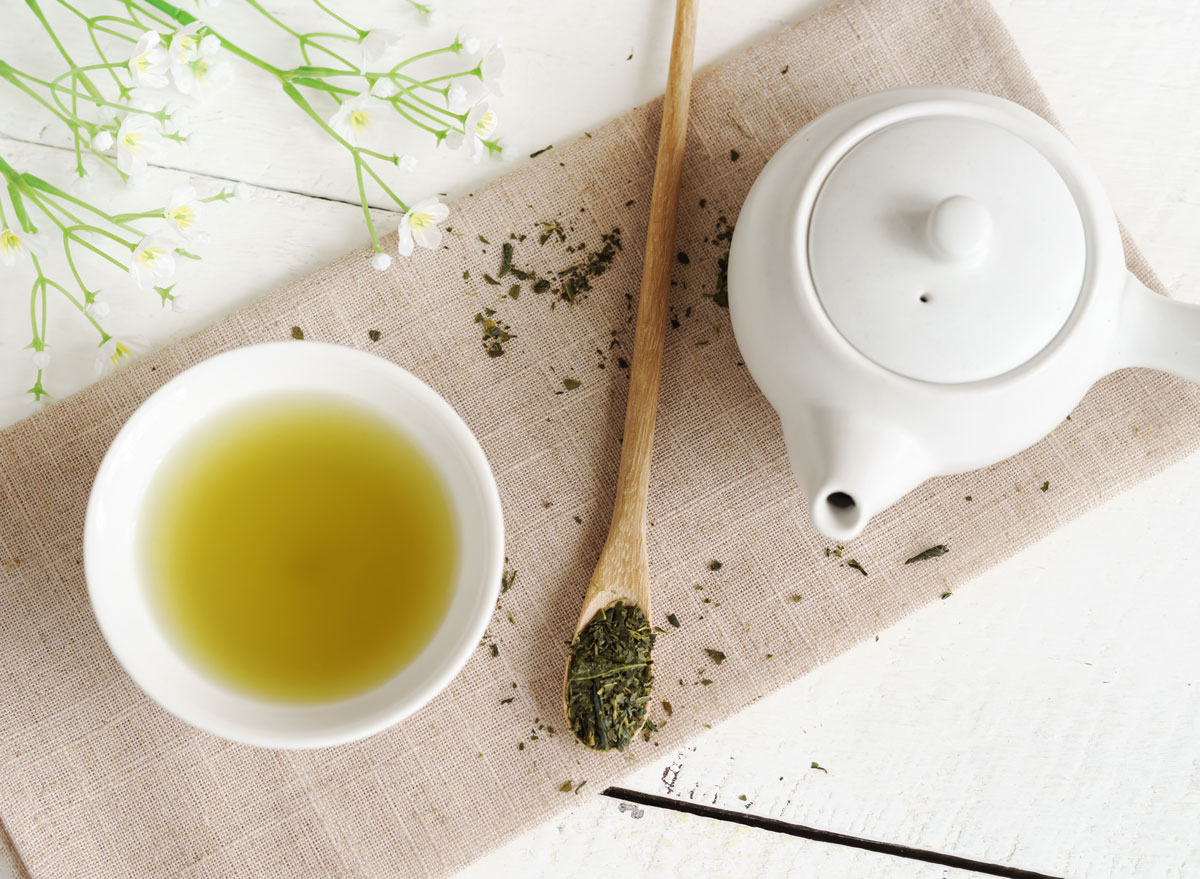
Your coffee habit may be stalling your weight loss progress. An Australian research team found that when mice consumed more than five cups of java a day, it led to increased belly fat storage. On the flip side, a different study found that subjects who combined five cups of green tea with three hours of exercise per week, lost 2 more pounds than their non-tea-drinking counterparts, the New York Daily News reports.
What makes green tea helpful with a diet plateau? It contains fat-blasting compounds called catechins, that chisel away at belly fat by revving the metabolism then speeding up the liver's fat-burning capacity. Making the switch from coffee to green tea may be just what your body needs to get back on track toward weight loss success—why not give it a go? You've got nothing to lose . . . But weight!
Read more: Learn how to harness the power of tea to lose weight.
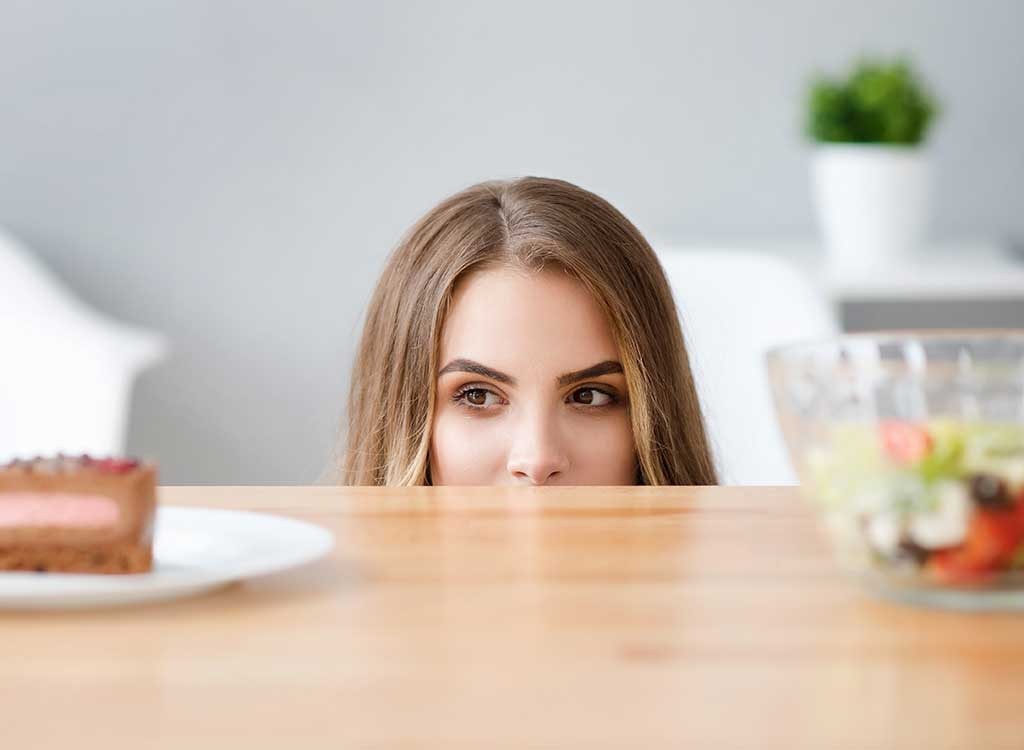
We don't typically condone cheating, but when it comes to losing weight, breaking the rules may be the key to success. "When you hit a plateau, take a carb-rich free meal, otherwise known as a cheat meal or a refeed meal. After a few days, things should start to progress again," says personal trainer and co-founder of Excelerate Wellness Victoria Viola.
"When we lose weight, we inevitability also lose fat. And the less fat you have, the less leptin (the 'satiety hormone') you'll produce, which tells the brain to conserve calories to prevent starving. Research indicates that the best way to amp up leptin production is to eat more carbohydrates. Unlike fat and protein, the carbs tell your brain that you are not going to starve and to burn calories at a normal rate."
Simply put, eat a slice of pizza or a burger and see what happens. It may trick your brain into increasing your calorie burn, resulting in weight loss.
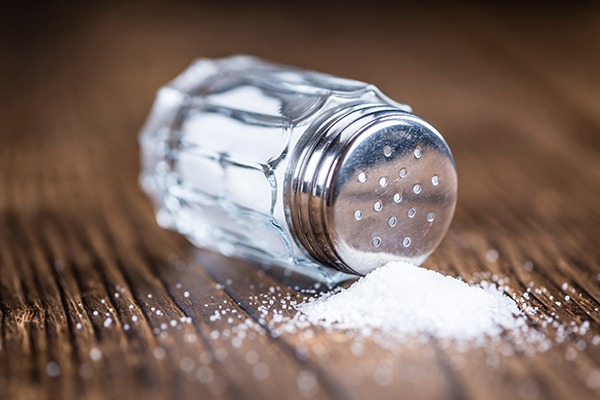
You know that sugar, your other white granular nemesis, can lead to weight gain. But how about salt? It's complicated. Short term, a high-salt diet can result in a higher number on the scale because salt leads to water retention in the body, explains Tony Castillo, MS, RDN, LDN, nutrition consultant for RSP Nutrition says. That said, water weight and fat weight are not the same and salt only directly causes the former. However, most salty snacks are big sources of sugar and fat, as well. And high intake of these ingredients is what causes long-term fat gain—not explicitly salt.
While sodium is a necessary part of any diet, the majority of adults eat way more salt than they needed. That's why Castillo recommends eating less "added salt" foods. This is an easy way to ensure you're not getting more than the recommended daily sodium intake of 2,300 milligrams and reduce intake of bad-for-you processed foods, he says. "An easy way to do this is to swap out snacks like a bag of chips for a hard-boiled egg and a piece of fruit so you are eating less salt-laden processed food," he says.
If you find you're regularly hankering for salty foods, Richards says boosting intake of potassium-rich foods like bananas, sweet potato, and spinach can help.
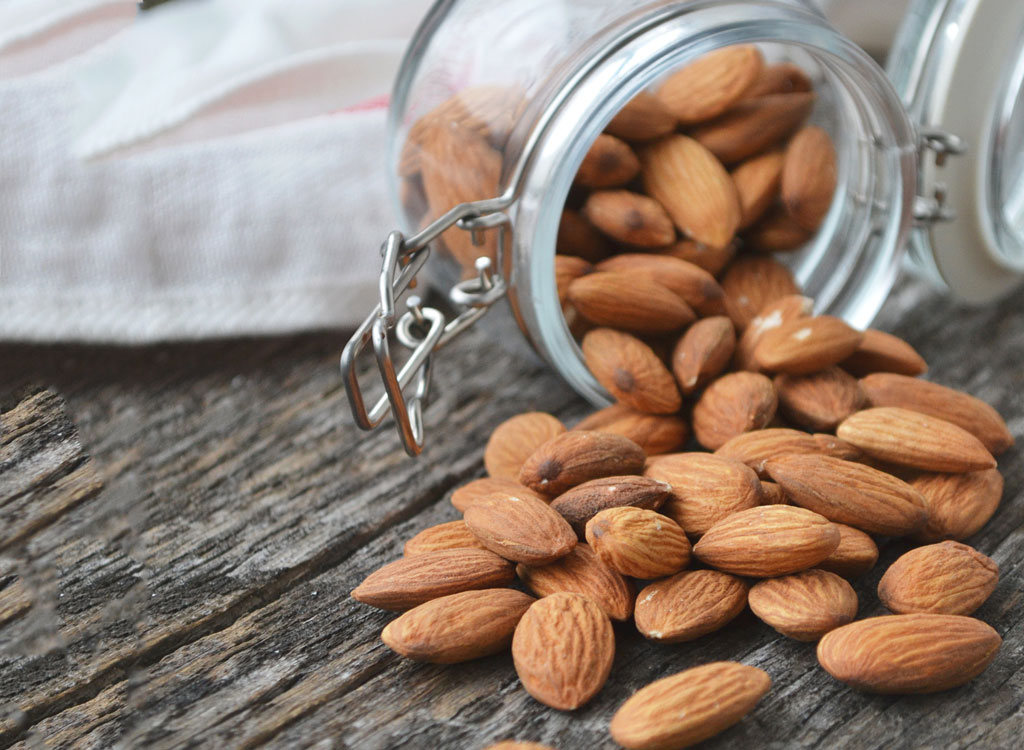
Want to get more out of your weight loss workout? Fuel your session with almonds, one of the best proteins for weight loss. The tear-shaped nut is rich in the amino acid L-arginine, which can actually help you burn more fat and carbs during workouts, accelerating your weight loss wins, according to a Journal of the International Society of Sports Nutrition report.
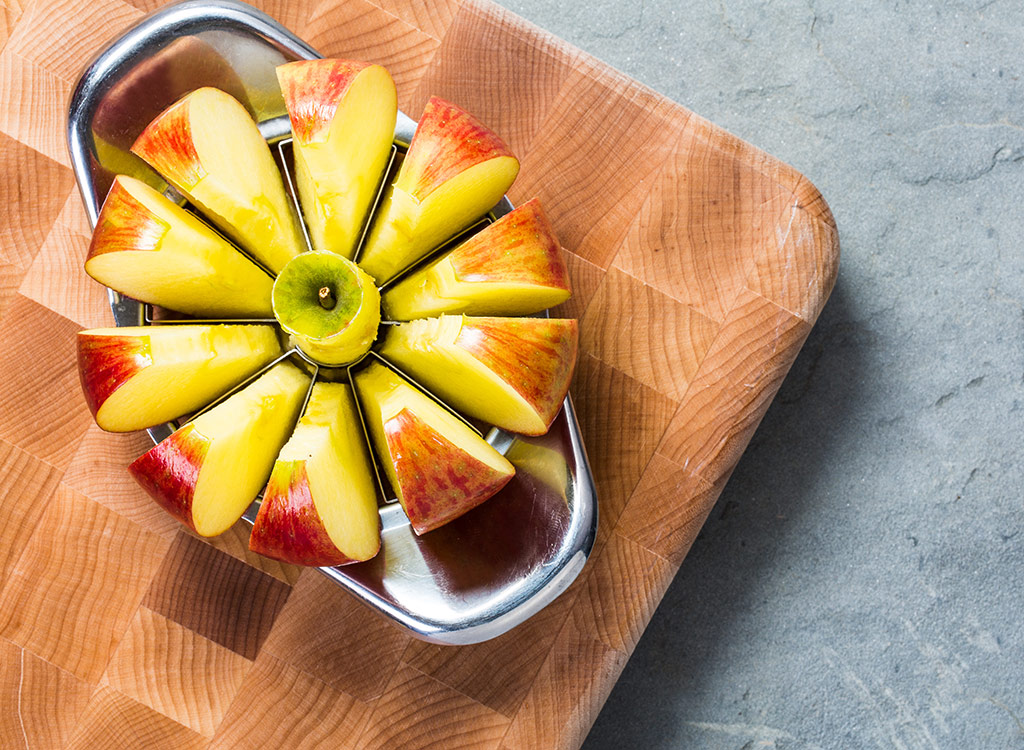
Like picking a fight to test someone's resolve in their own beliefs, eating regularly to lose weight may seem a bit counterintuitive—but it works. "Many people think that if they skip a meal it will help them lose weight, but that's simply not true," registered dietitian and personal trainer Jim White, RD, ACSM, owner of Jim White Fitness and Nutrition Studios tells us.
"Not only does skipping meals slow your metabolism, but it also causes blood sugar levels to plummet. This will leave you feeling famished, increasing the odds you'll overeat and stalling weight loss progress." Eating a combination of protein, carbs, and fats every four hours will help keep your calorie-burn consistent throughout the day and ward off progress-derailing hunger.
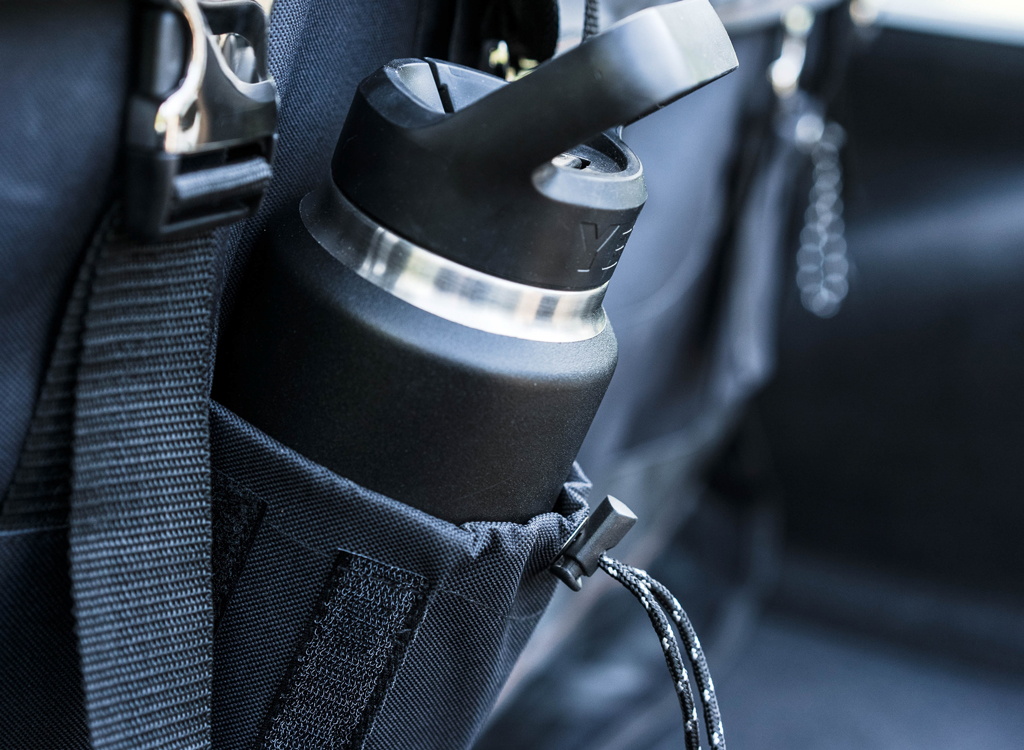
"One of the most overlooked aspects of a weight loss plan is proper hydration," says Kelvin Gary, Owner and Head Coach at Body Space Fitness in New York City. Not only can drinking water help to flush out excess salt hanging out in your system, but it can also keep hunger at bay and help you power through workouts more effectively, accelerating weight loss effects.
Keep a water bottle by your side on the reg so you'll remember to sip throughout the day. If your urine is a dark yellow, you're dehydrated and should start sipping.
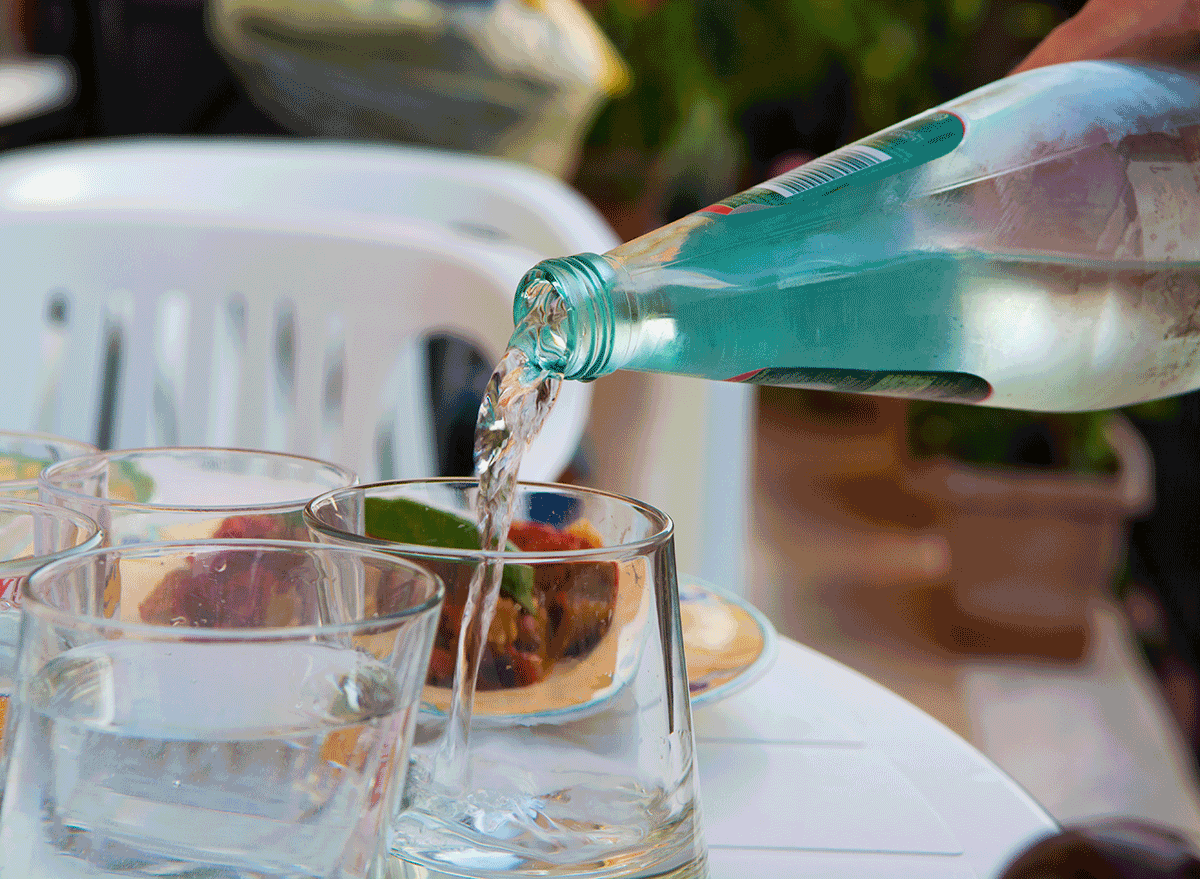
And speaking of H2O, be sure to drink the stuff before meals, advises registered dietitian nutritionist Elisa Zied, MS, RD, CDN. "A glass or two before a meal can help you fill up and curb overall calorie intake."
Science backs Zeid's claim: According to research presented at a meeting of the American Chemical Society, study subjects who sipped two cups of water before sitting down to a meal consumed 75 to 90 fewer calories. Over a 12-week period, dieters who followed the strategy three times per day lost about 5 pounds more than dieters who didn't increase their water intake.
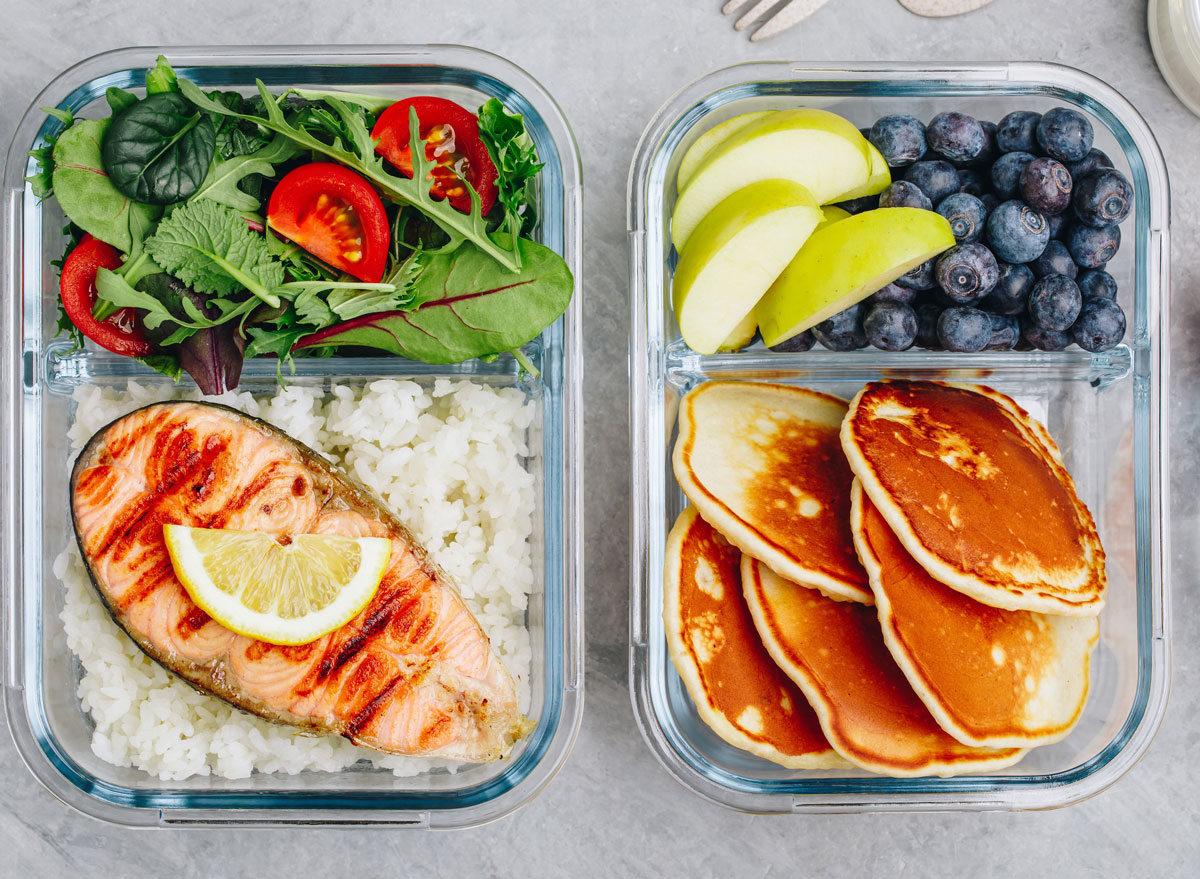
You've heard it a million times before: You need to eat protein if you want to lose weight. When you consider the nutrient's stellar skill set, it makes sense: Protein can boost metabolism and even help the body retain its muscle while scorching fat. Protein-rich foods also suppress ghrelin, which is a hormone secreted by the stomach that stimulates appetite, explains registered dietitian Gina Hassick, RD, LDN, CDE, who suggests including a lean source of the nutrient with each meal.
The reason: Those who stagger their protein consumption lost more weight and were more apt to maintain their new, fit figures than those who skimped on protein at certain meals, according to recent research. That means someone who is aiming for 60 grams of protein daily should consume 20 grams at each meal, which is about what you'd find in a 3-ounce chicken breast or a 7-ounce container of Greek yogurt.
To eat more protein to overcome a weight loss plateau, try a high-protein meal plan with at least 20 grams of protein at each meal:
Breakfast – 20 g protein: 5.3-ounce container Icelandic yogurt (15 g) + 1/3 cup protein granola (5 g) + 1/4 cup berries
Lunch – 23 g protein: Black bean "burrito bowl" salad, 1/2 cup black beans (7 g), 1/4 cup chicken (10 g), 1 ounce shredded cheddar cheese (6 g), fresh tomato salsa, 1 cup iceberg lettuce, cilantro-jalapeno dressing
Dinner – 28 g protein: 3-ounces teriyaki Atlantic salmon (22 g), 1/2 cup cooked broccoli (2 g), 1/2 cup quinoa (4 g)
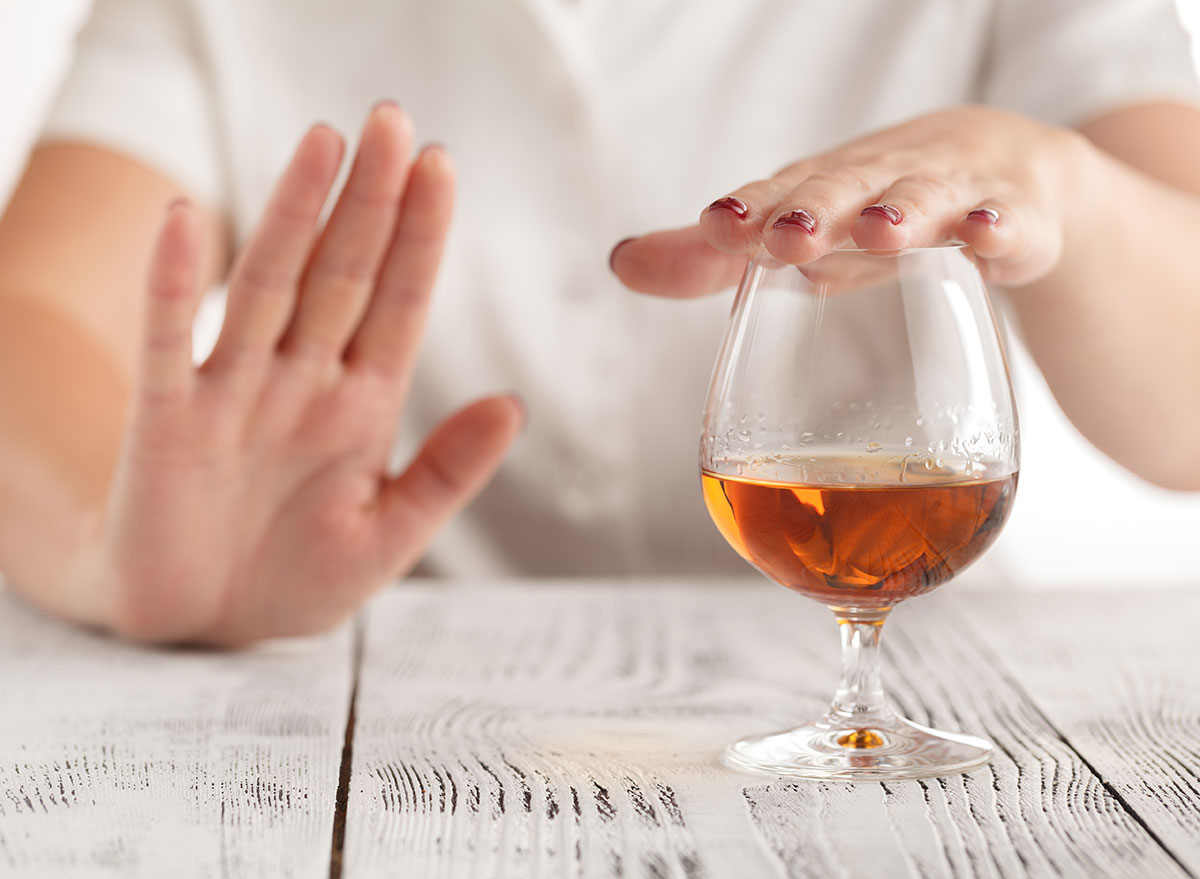
Alcohol and weight loss aren't just frenemies. Whatever way you slice and dice it, they're straight-up enemies. "Alcoholic beverages are high in calories, and due to the way alcohol is metabolized, someone's drinking habits often contribute to weight gain," says Lisa Richards CNC, nutritionist and founder of The Candida Diet. Even one glass of the "healthiest alcohol" (red wine, duh) is 125 calories—and that's if it wasn't a heavy pour.
Beyond that, there's the fact that "most people make way worse diet choices after they've been drinking," she says. "Consuming high-calorie, refined carbs while enjoying an alcoholic beverage aids in adding pounds and increasing your waistline." Consider a slice or piece, for instance. Even if you only have one piece (one!), you're still consuming about 250 calories—add that to the calories in your adult beverage and you've added at least 400 calories to your daily intake.
With all this in mind, if you want to lose weight without going completely alcohol-free, according to Richards, it's possible. "Drink alcohol without added ingredients like vodka or gin, and if you need a mixer, opt for a low-calorie beverage," says Richards. And if you can, eat a high protein meal before drinking, she says, you'll be less likely to crave junk.
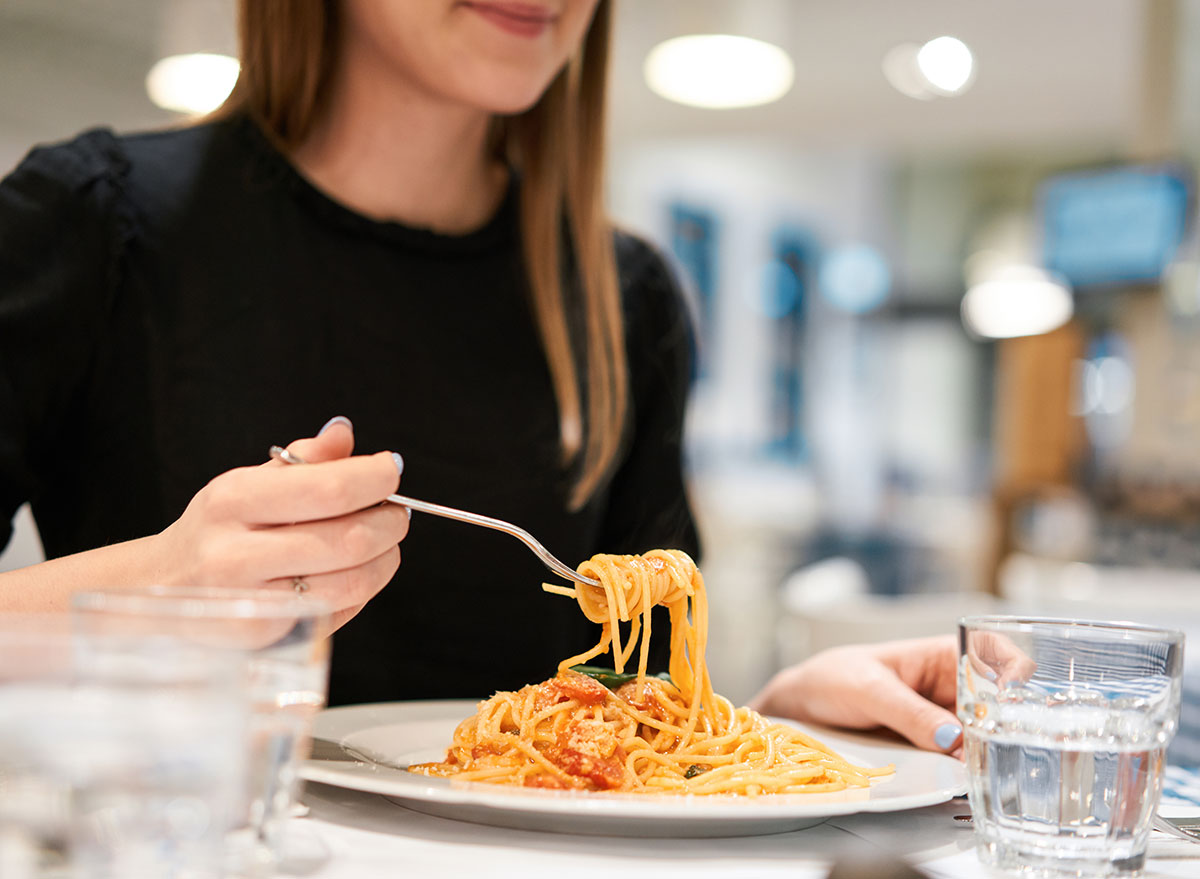
Thanks to the keto, Atkins, and the South Beach diet, "cutting carbs" and "going low carb" have become synonymous with losing weight. So you might be surprised to see this tip on the list. But here's the thing: carbs *aren't* inherently bad. While refined carbs probably don't have a place in your weight loss plan, carbohydrate-rich foods like whole grains, brown rice, and quinoa, do! "[These] complex carbs are packed with fiber, which helps you feel full and satisfied," says registered dietitian Brittany Modell, MS, RD, CDN, founder of Brittany Modell Nutrition and Wellness. Meaning: Hello fiber, goodbye snacking!
Richards adds that eating more carbohydrates can be especially helpful for people who aren't eating enough calories, period. For example, under-eating can actually back-fire against your weight-loss efforts by sending your body into starvation mode and slowing your metabolism. "If this is you, you will have to work to rebuild your metabolism, but once it is back to a normal amount you can maintain weight loss by following a balanced diet with sufficient calories and carbs," she says.
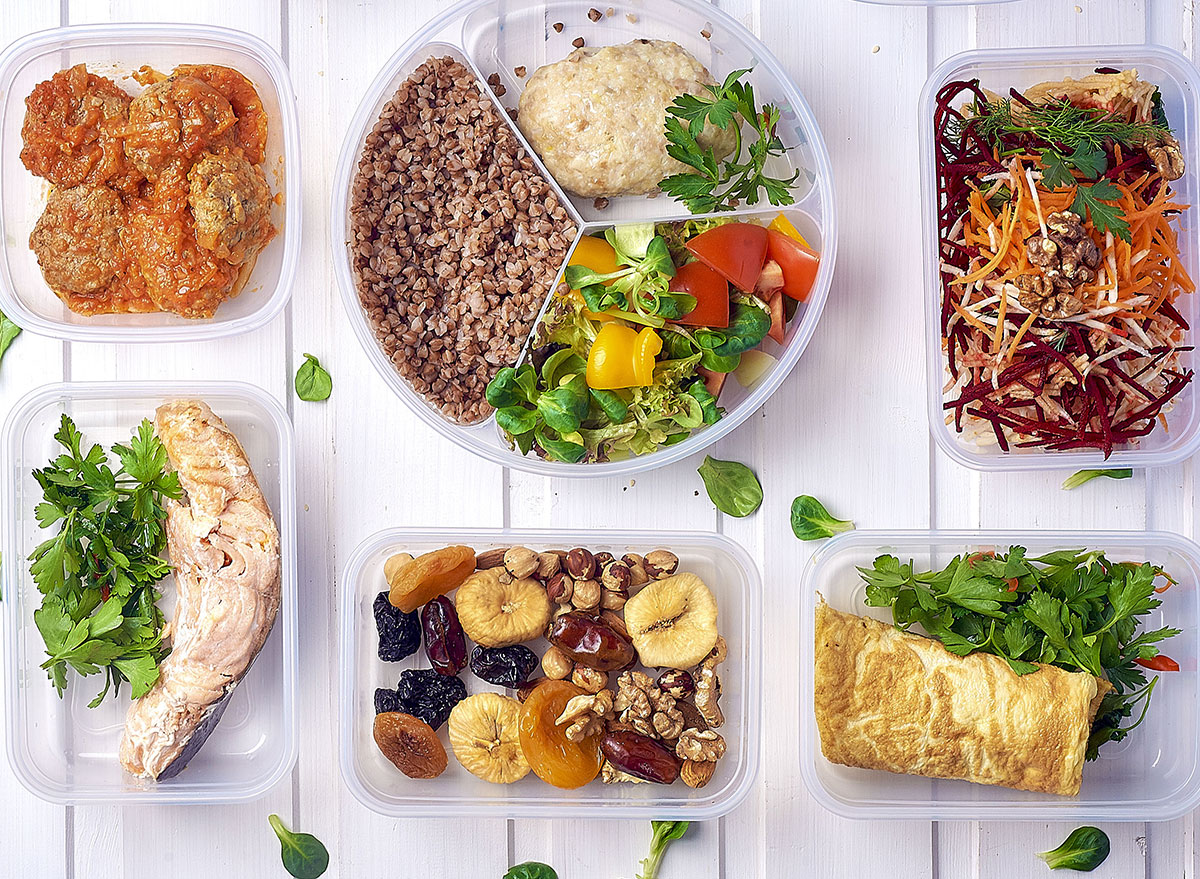
You've heard the saying "failing to plan, is planning to fail." And nutritionists stand by it. Enter: meal planning. "This simply involves planning your meals and snacks, making a grocery list accordingly, and prepping those meals on a specific night each week," says Richards. "It sounds time-consuming, but you'll actually save yourself hours in the kitchen and at the store," she says. Meal planning will also save you from resorting to Chinese takeout and pizza delivery on nights when you don't have the chutzpah to cook.
Her suggestion: Keep it fun by having a theme night (think: Mexican, vegan, Italian) every week, trying a new recipe, or having a meal prep night where you invite friends over and you all work together to plan or prep your meals.
Fitness Tips to Overcome a Weight Loss Plateau
Take your daily sweat session to the next level with the help of these fun, challenging, and invigorating fitness tips from some of the nation's top weight-loss experts.
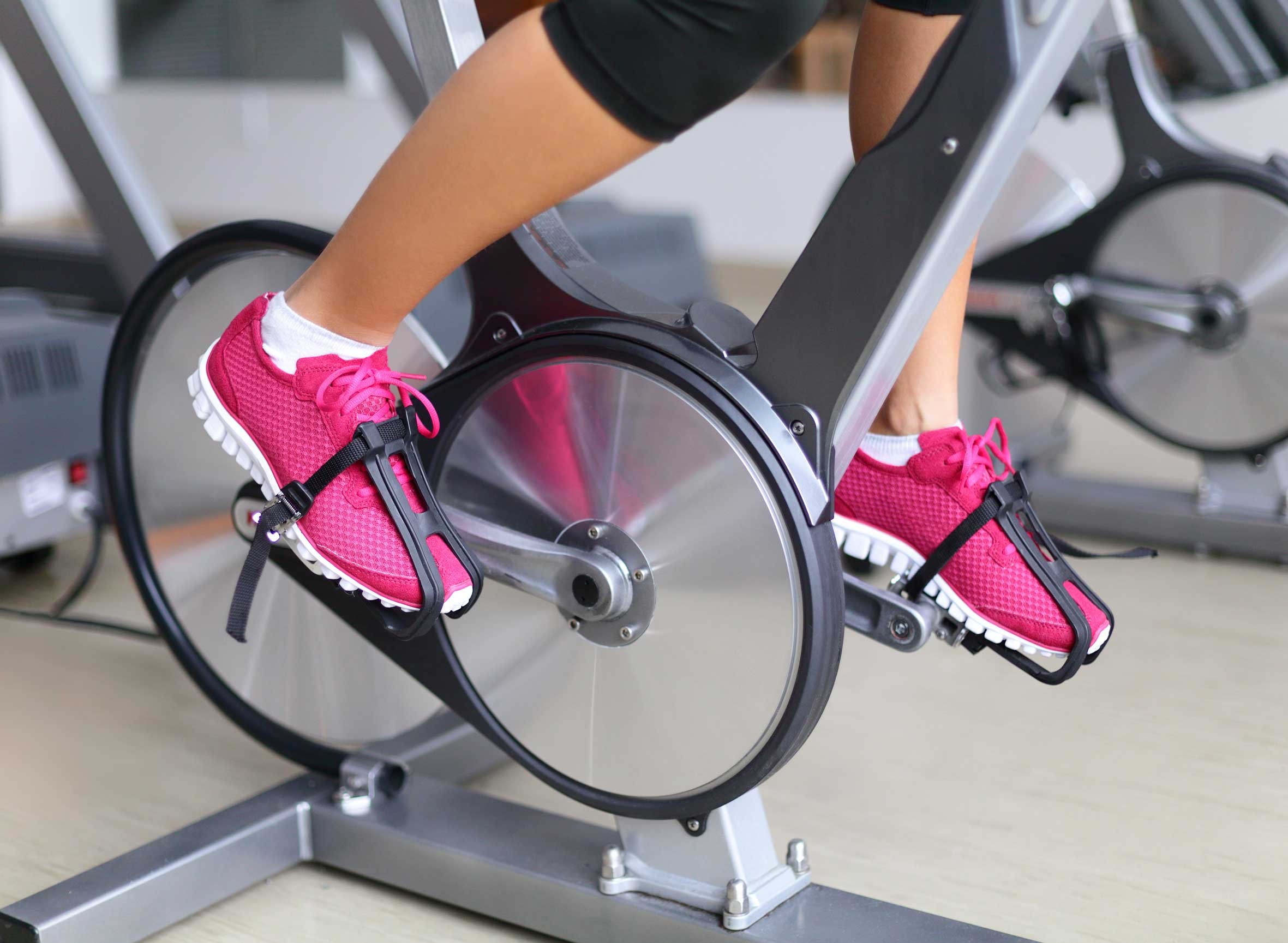
Mix up your workout—or try a new physical activity like tennis, hiking, rock climbing, or boxing. "When you have a regular workout routine, your muscles become familiar with doing the same exercises regularly," Hassick says. "Our bodies are smart. They learn how to do those exercises using fewer calories, making your regular exercise routine less effective for weight loss."
If getting into a new type of activity isn't your cup of tea, at least, vary your routine. If you typically do steady cardio, for example, incorporate intervals. If you typically do HIIT, log a few longer cardio sessions each week. And after you're done working out, revitalize your muscles with the help of our go-to protein shake recipes.

Not only can befriending someone who's fit (and willing to meet up with you for workouts) help you stick to your exercise routine, it can also push you to exert yourself a little harder, says White. Ask your fit sister-in-law if you can hit the weights with her, or ask your yoga-obsessed co-worker if you can tag along with him to a class. Befriending someone who's hyper-health-minded may be just what you need to kick-start your weight loss again.
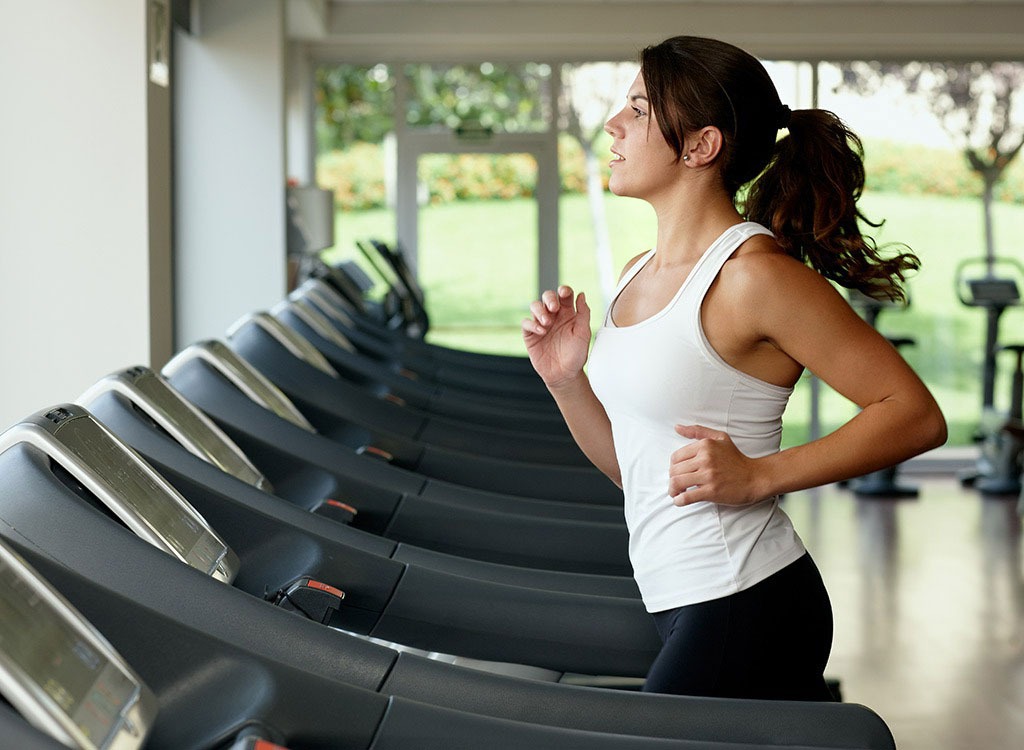
Interval training is another great way to amp up your calorie burn and reach your body goals. "Interval training means accelerating your exercise speed for a short period of time and then resuming to your normal speed for a slightly longer period," Wells says. "Continue alternating between faster and slower speeds for the duration of your usual cardio routine."
For a treadmill workout consider this routine:
Warm-up: 5 minutes walking
All-out sprint: 1 minute
Break: 2 minutes walk
Repeat the pattern until you hit the 30-minute mark.
You can also vary the intensity by changing the incline. Run for two minutes on a 1% incline and then crank it up to 6% for two minutes.

When weight loss stalls, it's a good indication that your body is no longer being challenged. Or in some rare cases, it may be a sign it's being pushed too hard. If it's the former, up your strength training to make sure you add or maintain lean muscle mass, suggests Gary.
"One of the first physiological adaptations to strength training is the increase of mitochondria in your muscle cells. This helps increase your body's capacity to burn fat," he explains. Simply put, the more lean muscle mass you have, the more calories and fat your body will burn at rest. Hitting a plateau can mean that you need to modify your resistance training, adds Wells. "Sticking with one weight lifting routine for too long will bog down your metabolism and possibly expose you to overtraining. I recommend using a periodized training program where you alter the type of movements, intensity, rest breaks, and amount lifted over several periods throughout the year," Wells says.
Celebrity trainer Kit Rich agrees that muscle confusion is key to success, and suggests increasing your weights and performing fewer reps, but also lifting lighter weights and performing more reps.
Lifestyle Tips to Overcome a Weight Loss Plateau
Every successful loser knows that shedding pounds isn't just a result of what you do at the gym and what you spoon onto your plate. It's about how you live your life as a whole. Eating and exercising only take up a fraction of the day, so why not utilize those other hours to your advantage, too?
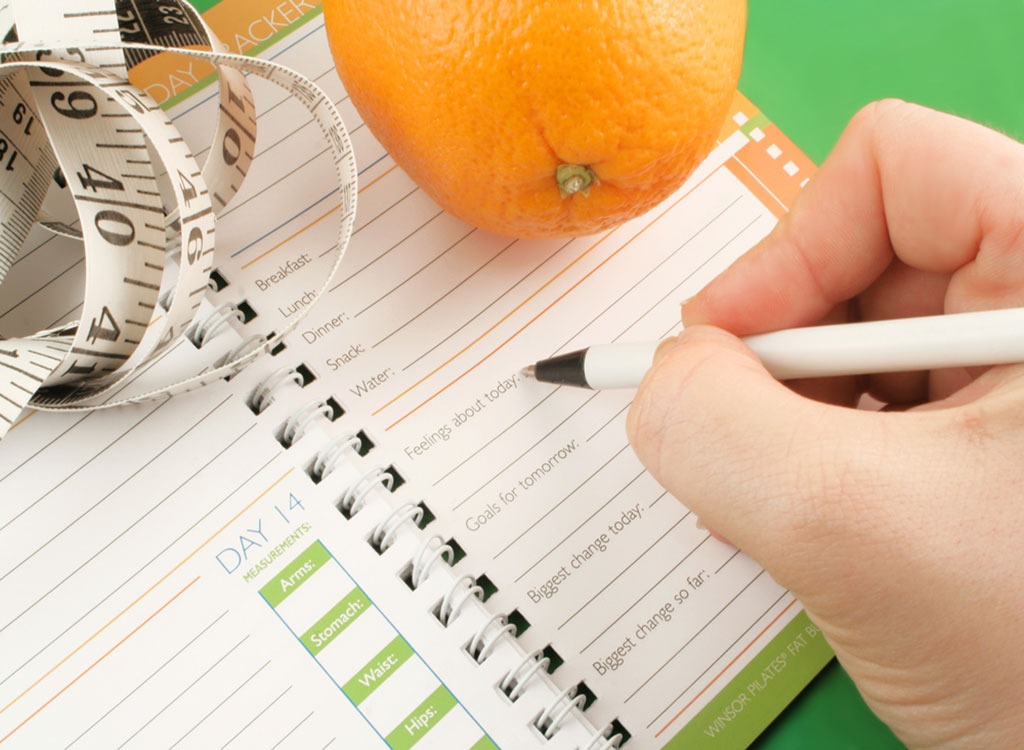
And be honest. You might have hit a dead end with your weight loss progress because you're eating more than you think you are and moving less than you realize. "What goes in must go down (on paper or on your cell phone). Research shows that people who journal what they eat are more successful at weight loss," says registered dietitian nutritionist Marisa Moore. "Use the journal to record every morsel of food and review it to see if there are certain triggers that lead you to eat more or less during the day. A journal can be an effective way to discover trends and uncover areas to improve, both with diet and lifestyle habits."

Listen up, late-night Netflixers, your lack of sleep is killing your weight loss progress! More than one out of three American adults do not get enough sleep, according to the U.S. Centers for Disease Control and Prevention. Not only can your lack of zzz's leave you feeling groggy it can have serious, long-term side effects and change your metabolism for the worse.
In fact, WebMD reveals that logging less than 6 hours of shut-eye can reduce fat loss by a shocking 55%—in part because when you're sleepy you also feel hungrier. "Too little sleep can lead to increased levels of stress hormones, which have been shown to cause weight and fat gain, especially in your midsection," says Hassick.

And in that same vein, take a rest day or two each week. "Sometimes one of the best ways to overcome a weight loss plateau is to rest," says personal trainer Ajia Cherry, ACE, CHC, CPT. "Oftentimes focusing too hard on a weight loss goal can have a negative effect on you. Giving your body and mind the appropriate time to recharge will not only put you back on track but will also give you a moment to reassess your diet and exercise regimen. It may be time to change up one or the other or both." Taking a few days off from the gym can also ward off overtraining.
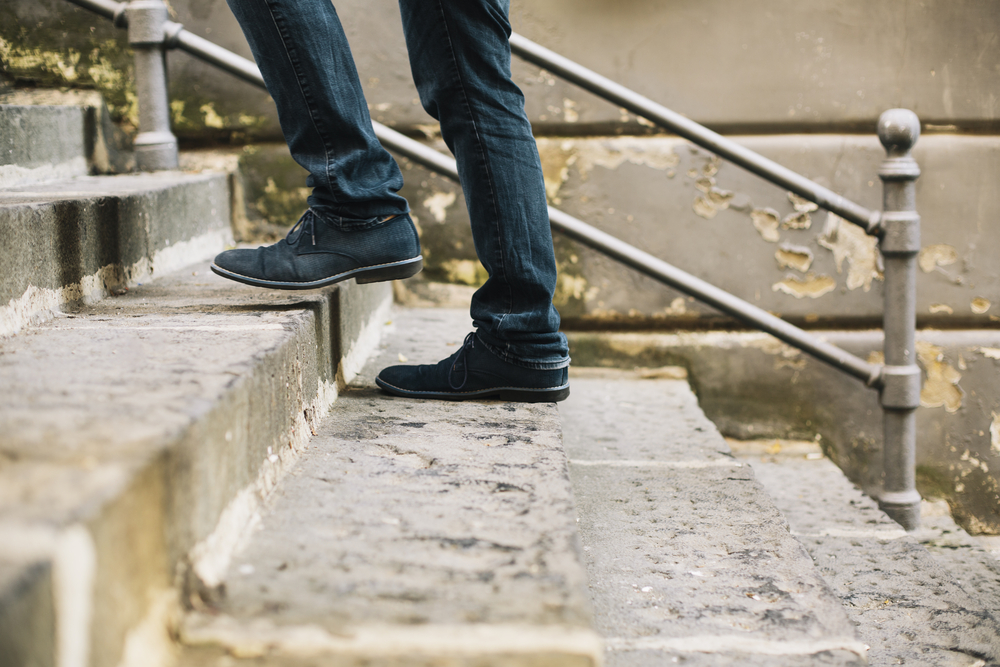
If you regularly hit the gym and keep your routine varied, build a little extra activity into your day to burn some extra calories.
- Do the dishes by hand
- Take the elevator instead of the stairs
- Take a walk around the block instead of grabbing a snack from the break room
While none of these things burn a ton of calories, every bit counts in your effort to get the scale moving again. For more fun ways to move more every day check out these ways to burn calories without a gym!

Sometimes when you hit a weight loss plateau, you just have to be patient and wait it out. Have faith that eventually you'll start losing weight again because you will! Because it can be hard to maintain motivation when you're not seeing results, reward yourself for healthy actions like sticking to a consistent workout routine and saying no to desserts throughout the workweek.
The trick, however, is to not reward yourself with food. Instead, try these non-food rewards:
- Manicures
- Massages
- SoulCycle classes
- Night at the movies with your friends
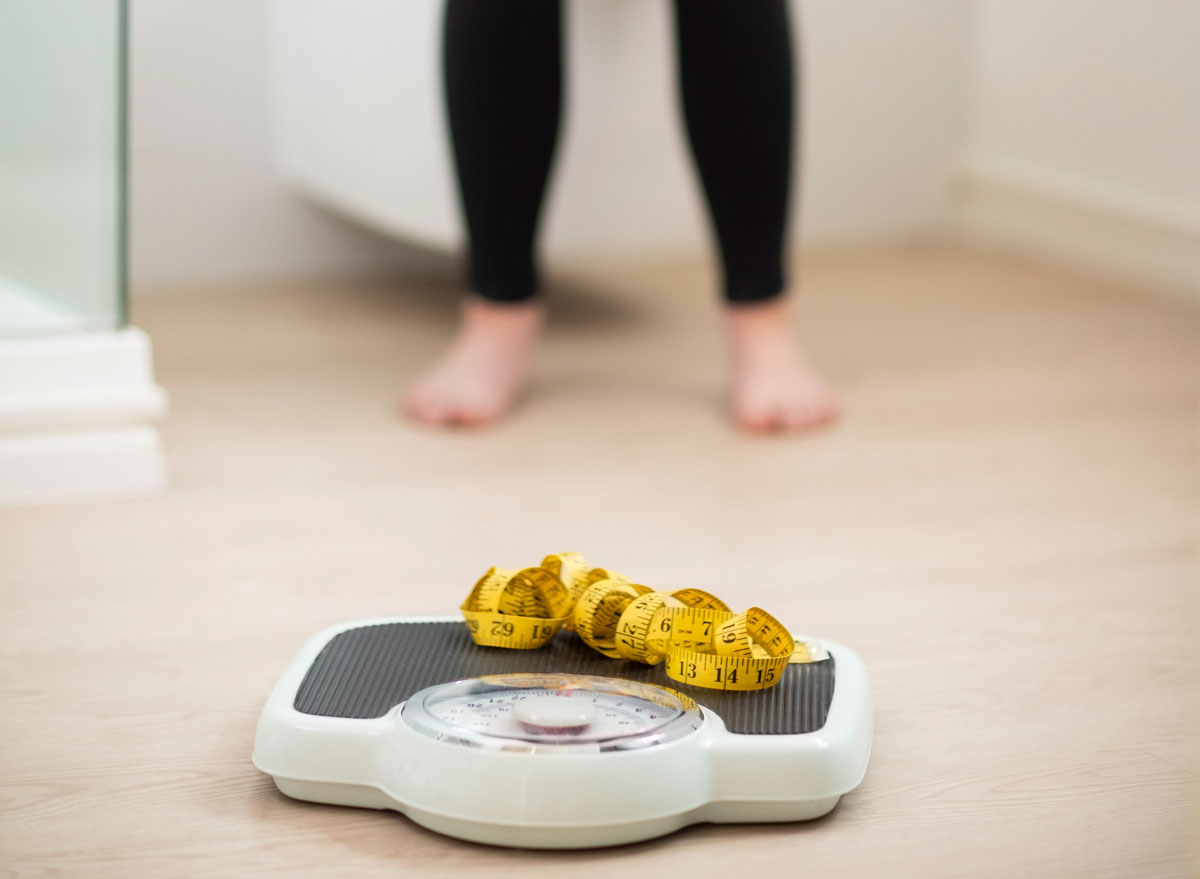
Don't want to literally write down non-scale victories? Fine. Still, consider looking beyond the numbers. "The way you feel, achieving greater endurance or intensity in your workouts, or simply looking better in your jeans are all reasons to celebrate that don't require you to hit a specific number on a scale," says Moore.
Celebrity trainer and creator of Methodology X Dan Roberts agrees, "Focus on the process of being healthy, lean and mean rather than just the weight loss results. In my experience focusing on only weight loss can be negative and won't lead to lifelong success."

Brace yourself for a punch to the gut. Stress—whether it's specifically connected to your weight loss journey or not—can interfere with weight loss. "Stress literally interferes with the body's ability to drop weight," says Castillo. Here's why: chronic stress messes with our levels of the stress hormone, cortisol. And high cortisol levels have been linked with obesity and weight gain. I know, ugh.
That's why Castillo says he asks anyone who's struggling to lose weight what their stress-management practices are. Don't have one? "A great way is by starting a meditation routine, journaling every night, or even reading a few pages of your book," he says.

Increased confidence. Better-fitting pants. Clearer skin. Lower cholesterol. Less joint pain. Sure, your goal might read "lose x pounds", but embarking on a weight loss journey will bring many additional benefits—even if the weight loss itself has stalled. Unfortunately, these benefits often go overlooked. That's why Modell recommends making a list of "non-scale" victories every week.
"Taking time to do this can help you develop a more positive relationship with your body and the weight loss process," she says. This list might read: 'I had 2L of water on Wednesday', or 'I was about to grab candy when I was stressed but instead I took a walk around the block', or 'I smiled while looking in the mirror today.' TBH, this exercise takes less than 2 minutes, so really there's no excuse not to do it.
Additional reporting by Gabrielle Kassel.
What to Do When Your Diet Stops Working
Source: https://www.eatthis.com/weight-loss-plateau/
0 Response to "What to Do When Your Diet Stops Working"
Post a Comment